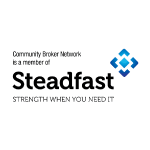Beware of Claims Farming
.png)
Claims farming – also known as claims harvesting - is on the rise in Australia. It’s a practice that can impact any business, often without warning.
If you or someone at work is involved in a compensation claim after an accident or injury, you could be approached by a claims farmer. These third-party operators contact people with potential claims, encourage them to seek compensation, and then sell their details to law firms.
Knowing how claims farming works and why it matters, can help you protect your business and your staff.
Understanding Claims Farming
Claims farming happens when a stranger cold calls you directly, typically by phone or email, after an accident or injury. They pressure you to make a compensation and insurance claim, even if you haven’t thought about it.
These operators aren’t offering legal advice; instead, they’re collecting your details to sell to law firms or claims agencies to earn a commission for the referral. This model prioritises claim volume over merit, making it unethical, invasive, and risky for targets.
Claims handling refers to the legitimate processing of insurance claims, while claims farming involves third parties pushing people into unnecessary or unethical claims. Ensure you don’t confuse the two.
You might have also heard about a whole different category of bona fide claims: redress schemes, such as for members of the Stolen Generation or those who’ve survived institutional sexual abuse.
Meanwhile, TV, radio, or social media ads inviting general claims along the lines of ‘injured at work? Call us for advice!’ are legal and are not claims farming.
The Unseen Consequences of Questionable Claims
Earlier this year, the NSW government cracked down on an illegal syndicate involved in claims farming to the value of $1.3 billion.
Persuading people to pursue unclear or unnecessary claims causes widespread harm. Poor legal advice, rushed assessments, or unnecessary litigation can trigger compensation claims that cause significant harm.
These practices put pressure on insurance systems. They clog the courts and delay support for genuine claimants. Costs increase. Premiums do too. Poor legal advice leaves some people under-compensated. Others are confused or stuck with bills they never expected. Trust in the system breaks down.
NSW Strengthens Regulations
In response to the issues, NSW introduced the Claims Farming Practices Prohibition Act in April 2025. This law prohibits the:
- Solicitation
- Purchase
- Sale of information related to personal injury claims
The new law brings in fines of up to $55,000 for those soliciting or trading claims. Queensland and Western Australia have already enacted measures targeting claims farming in motor accident cases. If your business operates across states, check with the relevant authority in each location to stay compliant.
Recognising the Warning Signs
How can you tell if you or your employees are being approached by a claims farmer?
Be alert for:
- Unsolicited calls or emails claiming you’re owed compensation
- Non-lawyers or unknown firms offering to handle your claim
- Pressure to decide quickly and sign legal documents you don’t have time to understand
- Early requests for sensitive info such as bank or ID details
- Hidden fees
- Claims that sound too good to be true
- Insistence on seeing a specific doctor or specialist before the claim can move forward
These tactics often target people after a life event like an accident, hospital visit, or insurance claim. Be cautious about sharing too
much on social media. It can make you a target and increase the risk of privacy breaches.
Why Your Business Should Be Concerned
SME owners are well aware that a single workplace injury or legal dispute can quickly escalate. If an employee becomes involved with a claims farmer, it can consume valuable time, introduce new risks, and potentially damage your SME’s reputation.
Claims farmers may also target businesses indirectly by collecting information from accident reports, monitoring online reviews, or scanning court records. Sectors such as construction, manufacturing, and logistics, where workplace incidents are more common, are especially vulnerable.
Protecting Your Business from Claims Farming
Claims farming poses legal challenges as well as reputational and operational threats. Whenever a personal injury claim arises, be it for yourself, an employee, or a client, ensure you verify that all parties and steps are legitimate.
We can assess your current coverage, identify possible vulnerabilities, and help protect your business from risks associated with third-party claims. We stay updated on legislative changes and can support you in spotting anything suspicious. This is not legal advice, but practical guidance to help you manage risk with confidence.
While claims farming remains a concern, your business can stay informed and protected.
Important notice
This article provides information rather than financial product or other advice. The content of this article, including any information contained in it, has been prepared without taking into account your objectives, financial situation or needs. You should consider the appropriateness of the information, taking these matters into account, before you act on any information. In particular, you should review the product disclosure statement for any product that the information relates to it before acquiring the product.
Information is current as at the date the article is written as specified within it but is subject to change. BICS make no representation as to the accuracy or completeness of the information. Various third parties have contributed to the production of this content. All information is subject to copyright and may not be reproduced without the prior written consent of BICS.



